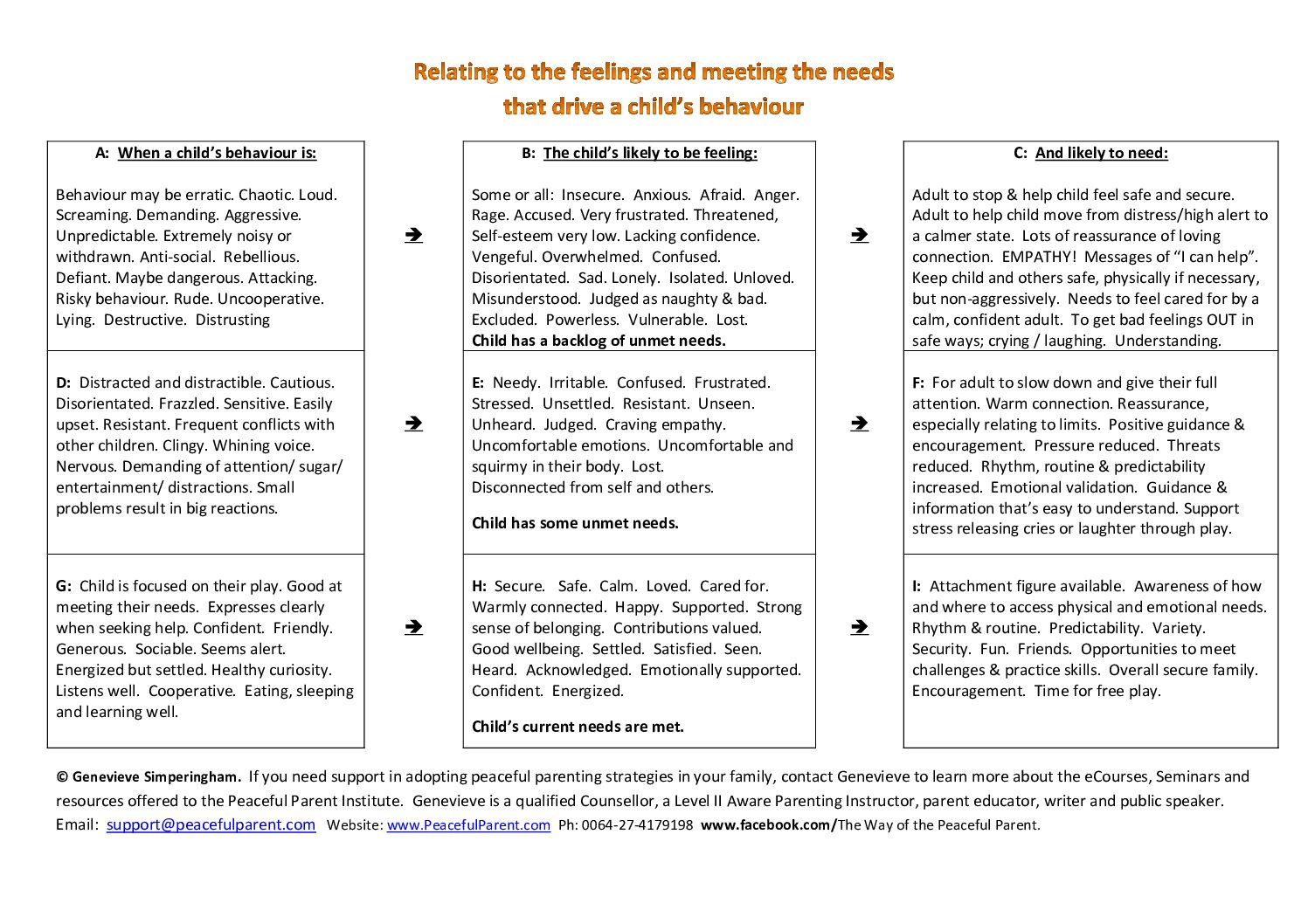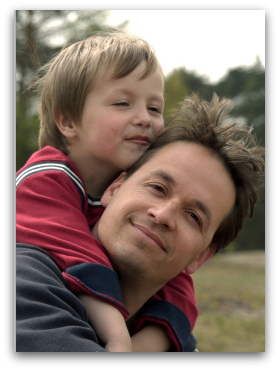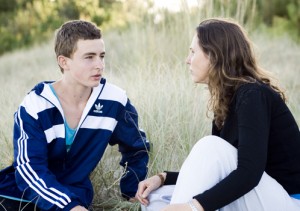 You know that you love your child. And your child knows that they are loved. Yet on any particular day, we want our child to not just know but to FEEL our love.
You know that you love your child. And your child knows that they are loved. Yet on any particular day, we want our child to not just know but to FEEL our love.
When most of the below needs are met more often than not, your child will be more likely to FEEL loved and secure.
Peaceful parenting is a model of parenting that’s neither authoritarian or permissive, but aims to support parents to guide their children with a consideration of the child’s feelings and the unmet needs that drive their behaviour.
Identifying and meeting needs helps children feel more settled, less stressed and allows them to return to a more calm and balanced state.
This emotional needs checklist can help parents identify what might be missing and what’s needed for their child when their behaviour signals that they’re out of balance. All children are good children doing their best and reflecting their family’s environment and reflecting the image of themselves that they’re receiving. There may well be small steps you can take towards meeting those needs today. All children have their ups and downs each and every day, their happy and their sad moments.
Happy, Confident, Co-Operative children generally …….
- Feel safe and secure.
- Feel loved and liked.
- Feel warmly connected to.
- Feel listened to, understood and acknowledged, they believe “my thoughts and feelings are important in our family”.
- Feel respected and valued – spoken to, looked at and touched respectfully.
- Feel encouraged and supported – lots of positive reflection.
- Can express their needs for help, attention and support without fear.
- Are allowed and supported to express their strong feelings – If they don’t get it out, they will act it out.
- Are not afraid to make mistakes.
- Feel safe and secure in the confidence that they will be taught and guided with patience and tolerance, not punished.
- Do not fear that their parents/ caregiver’s will hurt them using anger, rejection or punishments.
- Go to sleep each night feeling loved and cherished – all conflicts repaired.
- Eat enough fresh healthy food and water.
- Live in a smoke free, drug free environment and are not exposed to their caregivers being intoxicated.
- Are not overly stressed or pressured to perform (there’s a big difference between being encouraged or forced).
- Are free to largely learn at their own pace.
- Have lots of fun, play and laughter with family and friends.
- Spend quality time and lots of free play in nature.
- Are protected from over-exposure to TV, computers, screens and particularly protected from adults themes.
- Are protected from sexual abuse. Parents need to teach children healthy boundaries as well as self-educate to better identify risks.
- Live in an emotionally responsible, healthy and mature family – where integrity is valued and healthy communication skills are practiced.
- Have healthy, mature role models to aspire to. Kids need real life heros!
- Get enough sleep, rest and down time (reading, art, free play etc).
- Have adults who spend time talking with them.
- Feel proud of and connected to their identity, family and culture.
- Feel supported, not overpowered, when problem solving.
- Share family meals and quality family time.
- Get regular quality one on one time with their parent(s).
- Feel confident that conflicts can be worked through and learned from together.
“Happy, confident and co-operative” relates to how a child feels in a particular moment rather than always. Yet, when many of a child’s needs are met, they will generally be less stressed, and generally happier, more confident and hence more co-operative more of the time.
If your child’s behaviour is aggressive, chaotic, hyperactive, withdrawn or otherwise problematic on a regular basis, for the neurotypical child, this will be symptomatic of some unmet needs. Extremely out of balance behaviour can of course also be indicative of health issues or of the child having neurological conditions that need to be assessed. There can be so many and very varied influences upon the child that affects their health, balance, wellbeing and coping capacity.
The above list is not meant to cover every possibility, but can provide helpful food for thought of where some stresses may be stemming from for the neurotypical child, which can perhaps be changed or eliminated. And indeed, when a child does have a neurological, mental health or physical health problem, it becomes even more important that their stress is lowered by meeting as many of the above needs as possible.
There may well be some small steps you can start to take to meet these needs and help your child return to feeling more settled and secure.
- Do you need help and support to better understand what your children are communicating through their behaviour?
- Do you need help and support to make changes to your lifestyle or to your styles of communication within the family?
- Where can you access that help in your family, extended family or community?
- Would you benefit from joining our online peaceful parent village, which is a safe space where you can seek support and advice from experienced peaceful parenting mentors, from Genevieve and from other parents and educators who are committed to peaceful parenting, and where there’s an extensive resource library and eCourses full of videos, audio, cheat sheets, workbooks etc for you to learn at your own pace.









Thank you for sharing your thoughts. I truly appreciate your efforts and I will be waiting
for your next post thank you once again.
Thank you, I absolutely loved this article and have put up a link on my web site. When children are being “difficult” we sometimes forget that their basic needs are not being addressed and that addressing them solves the problem — it’s as simple as that. Children can’t always tell us when their basic needs are not being met so this is a great checklist to have. Thanks Genevieve!
Thanks for sharing this list.I have two children’s mother.So just not me. It is very important for all parents to know it.Because I think it is our duty to know their needs.
This is a very comprehensive article. Thank you !
I agree that fun is an important component to look for in a child care facility. My son tends to have a short attention span so it’s important to have something that would get his attention constantly. Playing a lot will also help him be more sociable.
[…] Toți copiii au suișuri și coborâșuri în fiecare zi, momente fericite și triste. “Fericit, încrezător și cooperant” se referă la felul în care un copil se simte într-un anumit moment, mai degrabă decât întotdeauna. Cu toate acestea, atunci când multe dintre nevoile copilului sunt îndeplinite, el va fi, în general, mai puțin stresat și mai fericit, mai încrezător și, prin urmare, mai cooperant în cea mai mare parte a timpului”, explică specialiștii The Peaceful Parent Institute din Noua Zeelandă, într-un articol publicat pe site-ul institutului Peacefulparent.com. […]
[…] we stop to consider their feelings and needs as we guide children largely determines whether the interaction will go well or will result in a […]